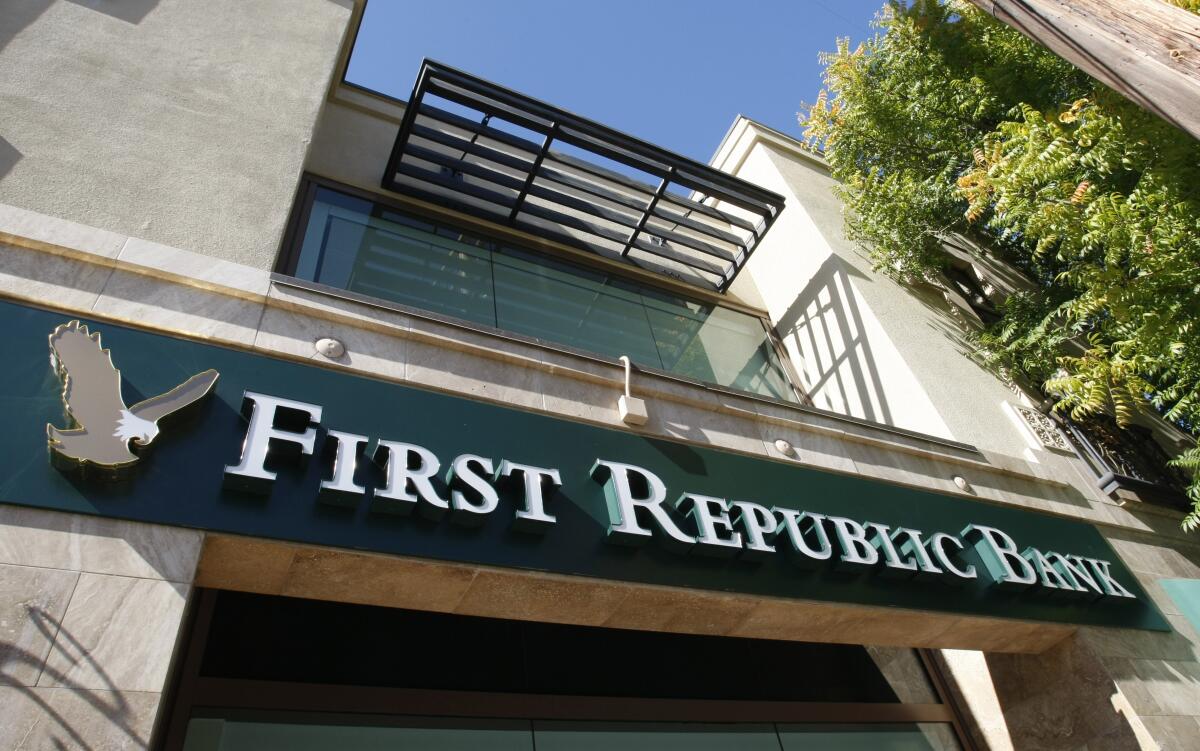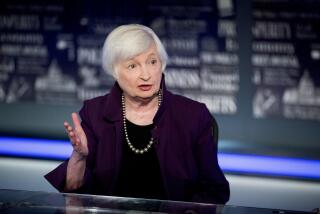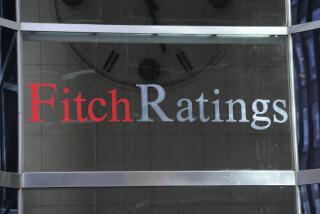First Republic Bank cut to junk status by S&P, Fitch amid bank turmoil

- Share via
First Republic Bank was cut to junk by S&P Global Ratings and Fitch Ratings amid concern that clients will pull holdings from the lender, even after U.S. regulators pledged support for the banking sector.
The California bank’s credit rating was lowered to BB+ from A-, and it remains on credit watch negative, according to an S&P statement Wednesday. Shortly after, Fitch cut the bank to BB from A-, a step below the S&P rating, and placed it on a negative rating watch.
Both credit rating firms said further downgrades are possible as First Republic faces deposit outflows that could affect its liquidity and ramp up wholesale borrowing.
“The bank’s business position will suffer after the volatile swings in its stock price and heightened media attention surrounding deposit volatility,” S&P analysts Nicholas Wetzel and Rian Pressman wrote. “Its business stability has weakened as market perceptions of its creditworthiness have declined.”
Shares of First Republic slumped by as much as 26% Wednesday, with other regional banks also lower in another volatile day of trading. First Republic pared the drop during the day, closing at $31.16 a share, down 21.4%.
A spokesperson for First Republic Bank declined to comment.
Silicon Valley Bank failed late last week, prompting fears of wider upheaval. Here’s what you should know about the collapse and what comes next.
The downgrades from two major credit-rating companies officially move the bank to the high-yield market, a rare designation for financial institutions. Moody’s Investors Service had placed the bank — along with five other lenders — on review for downgrade earlier in the week.
S&P expects the lender to ramp up wholesale funding in the aftermath of collapses at Silvergate Capital, SVB Financial Group’s Silicon Valley Bank and Signature Bank. The move stands to hit both interest margin and profitability, the analysts wrote. Silicon Valley Bank’s rating was lowered and withdrawn by S&P after the lender was taken over by the Federal Deposit Insurance Corp.
“First Republic’s total profitability is more weighted toward net interest income than most regional bank peers since its fee income (mostly fees related to wealth management) is less than 20% of total profit,” they wrote.
Fitch, meanwhile, said the bank’s positioning in municipal bonds and its deposit base being focused on “wealthy and financially sophisticated customers” also constrain the rating.
The lender’s “deposit concentrations are now viewed as a rating weakness,” Fitch analysts Johann Moller and Michael Shepherd wrote in a Wednesday statement.
How seriously the downgrades should be taken by retail consumers is another matter. The agencies rated both SVB and First Republic at investment grade until it was too late, depositors started fleeing and stock prices were crushed.
Francine McKenna, who teaches at the Wharton business school and publishes a newsletter called the Dig, said the downgrades were necessary, but “the question is whether they did it soon enough to have people understand what’s happening and make a decision, or is it just to cover” themselves?
After the collapse of SVB, U.S. regulators put together an emergency package of support for financial institutions, designed to prevent any further failures.
President Trump-endorsed rollback of Dodd-Frank’s tougher scrutiny of banks was a significant factor in SVB’s problems. But it wasn’t the only culprit.
Given the severe political repercussions that would unfold should the government not meet its obligations, financial advisors say there’s probably no reason to worry — whether your insured money is parked at Silicon Valley Bank, First Republic Bank or anywhere else covered by the FDIC.
“As long as you’re minding your Ps and Qs and keeping your deposits under $250,000, I’d feel pretty confident in the system,” said Andrew Hoffarth at wealth management firm Financial Alternatives in La Jolla.
Mitchell writes for the Los Angeles Times and Joshua writes for Bloomberg.
More to Read
Inside the business of entertainment
The Wide Shot brings you news, analysis and insights on everything from streaming wars to production — and what it all means for the future.
You may occasionally receive promotional content from the Los Angeles Times.













